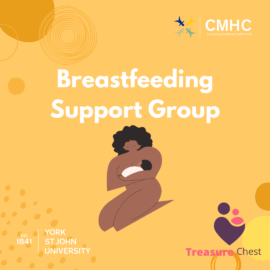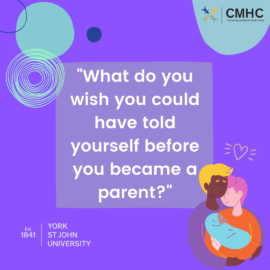Hello again!
Maternal Mental Health Awareness week is coming to a close, it’s been a week-long campaign organised by the Maternal Mental Health Alliance to raise awareness of the complicated mental health issues that new mothers may be faced with, and a chance to advocate for the people affected by these issues. Earlier this week we published a blog post that gave tips and advice for parents everywhere, written by the experts: Other parents.
In recognition of the end of Maternal Mental Health Awareness week, we invited our own resident parent and families expert, Dr. Sylvie Simonds to give new parents in the community some advice. Here’s what she said:
“Volcanic feelings of love and hate are part of being a parent: it’s dangerous to pretend otherwise” Edward Marriott
Psychotherapist Edward Marriott’s quote calls attention to the important psychological states that one can experience in relation to maternal and paternal ambivalence, which is the coexistence of two emotional states: love, and hate, excitement and dread, and so on… The imagery Marriott conjures up such as ‘volcanic feelings of love and hate’ are perhaps a normal part of being a parent,’ and they recall a sense of overwhelm, both positive and negative in the forms of an eruption or a wave- which can be experienced as an outpouring of feeling and perhaps unpredictable in nature.
In reflecting about maternal mental health and the significance of this week, I am reminded of the value in sharing stories about motherhood/fatherhood which reflect the messiness of motherhood, and call attention to the notion of ‘ambivalence,’ and the untold stories, which far too often remain in the shadows and become internalised as shame, for fear of judgement, failure and taboo. There is no straightforward or linear path to motherhood, and there is no ‘normal’ way to be a mother, no normal or best way to feed a baby, nor is there a ‘normal,’ way to have a baby. The many challenges of becoming a mother will be unique, fraught and different for each individual and therefore demand an attentiveness that is respectful to each person in their own right. Motherhood is often described in terms of polarity, and this can be divisive and binary rather than supportive and inclusive.
Looking after your mental health is essential for motherhood, and yet equally challenging to do so in these current times. It takes courage to ask for help, and I appreciate that there are many mothers’ who are experiencing loneliness in different forms: danger, homelessness and isolation with the absence of support and are without a ‘village’ or network. Isolation is a barrier to human connection and intimacy. Furthermore, the impact of COVID has exasperated maternal mental health in many predictable and unpredictable ways. Learning to ask for help can be difficult and evoke feelings of vulnerability and helplessness. Talking or confiding to one person can be helpful, as it breaks the silence. No person should suffer in silence and if you have concerns about your mental health speak to your GP, midwife or health visitor and if in crisis seek urgent and immediate help by dialling 999. You are not failing if you don’t ‘love’ every minute of being a mother: the sleepless nights, uncertainty, fear, and tasks of looking after a baby can be daunting, overwhelming and scary at times. Equally, it is possible that past traumas can resurface in the present and give voice to what Selma Freiburg describes as ‘ghosts in the nursery.’ These transitions are challenging and require care, sensitivity and the permission to heal and allow oneself to be vulnerable.”
A huge thank you to Dr Sylvie Simonds for this insight. We will be back soon with more posts for you, and in the meantime, here are some resources for you if you need some extra support:
York Counselling and Mental Health Centre
Maternal Mental Health Alliance


